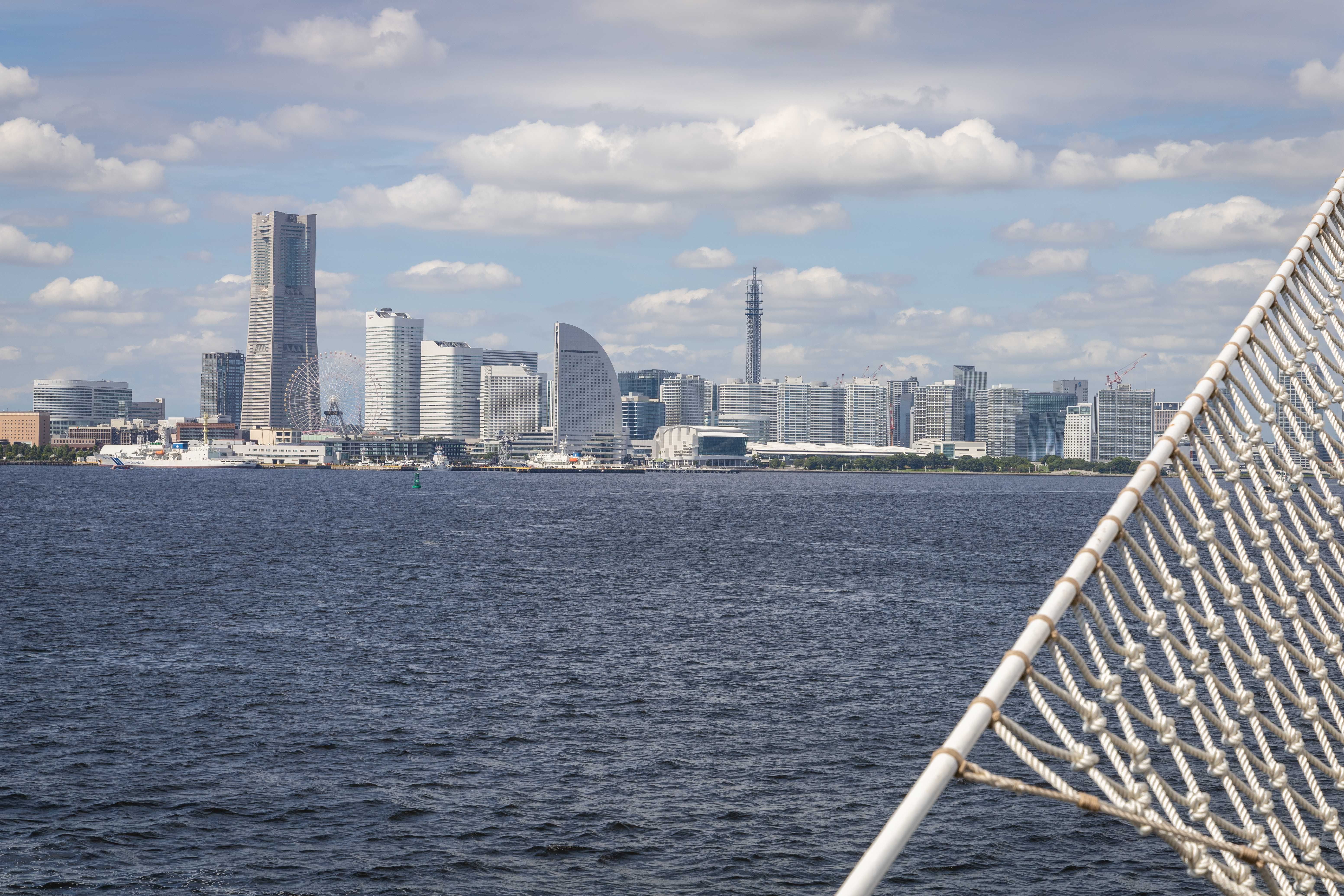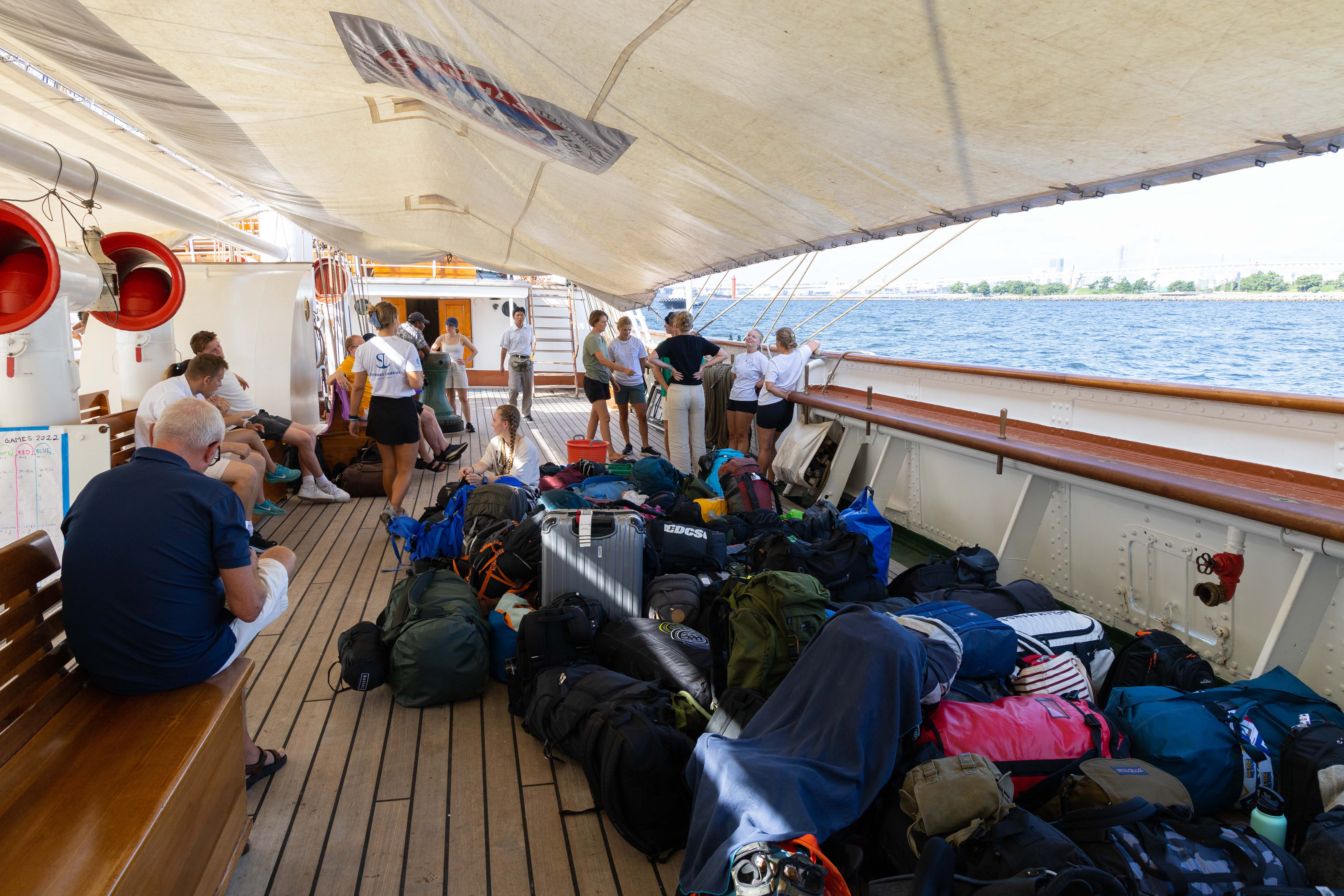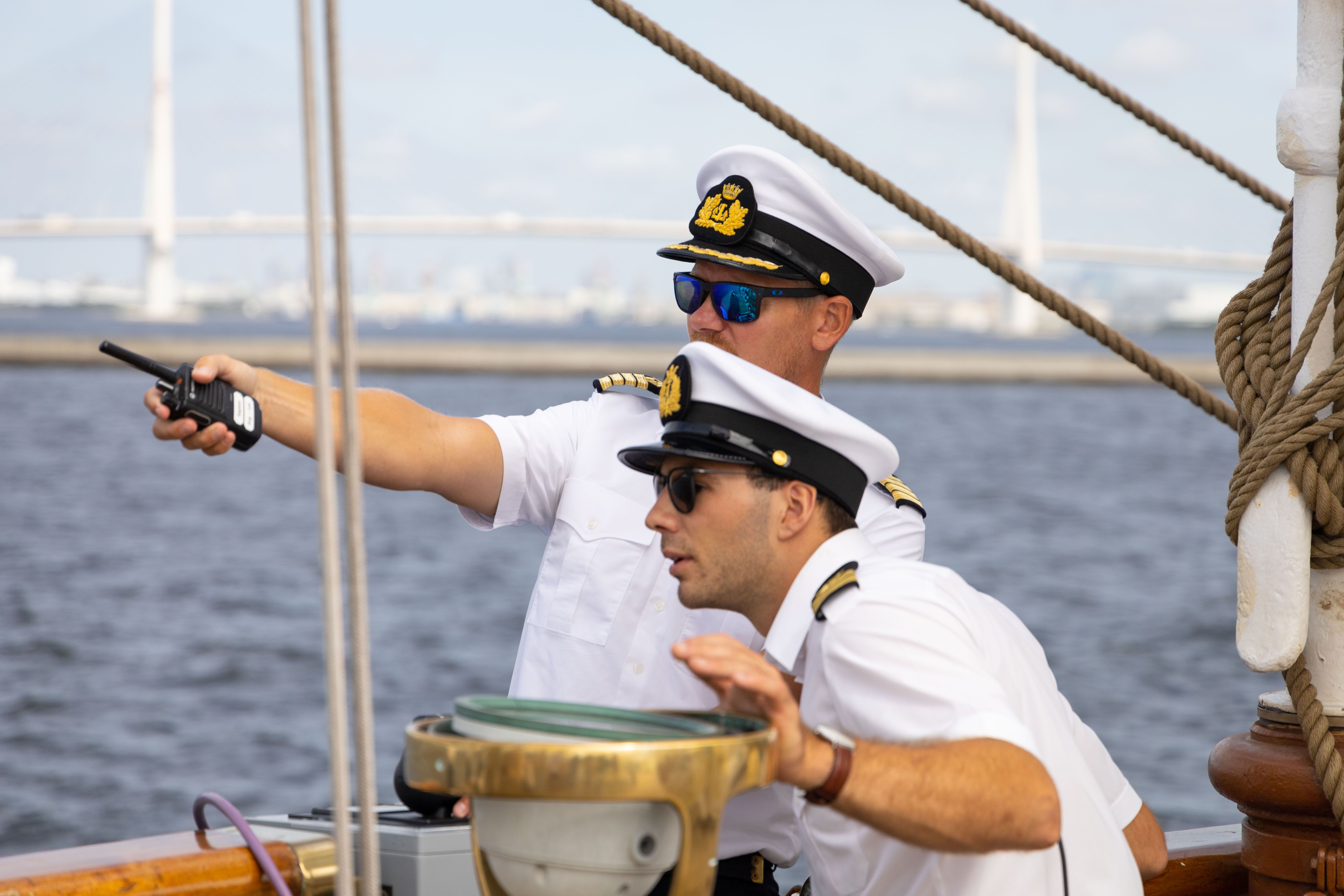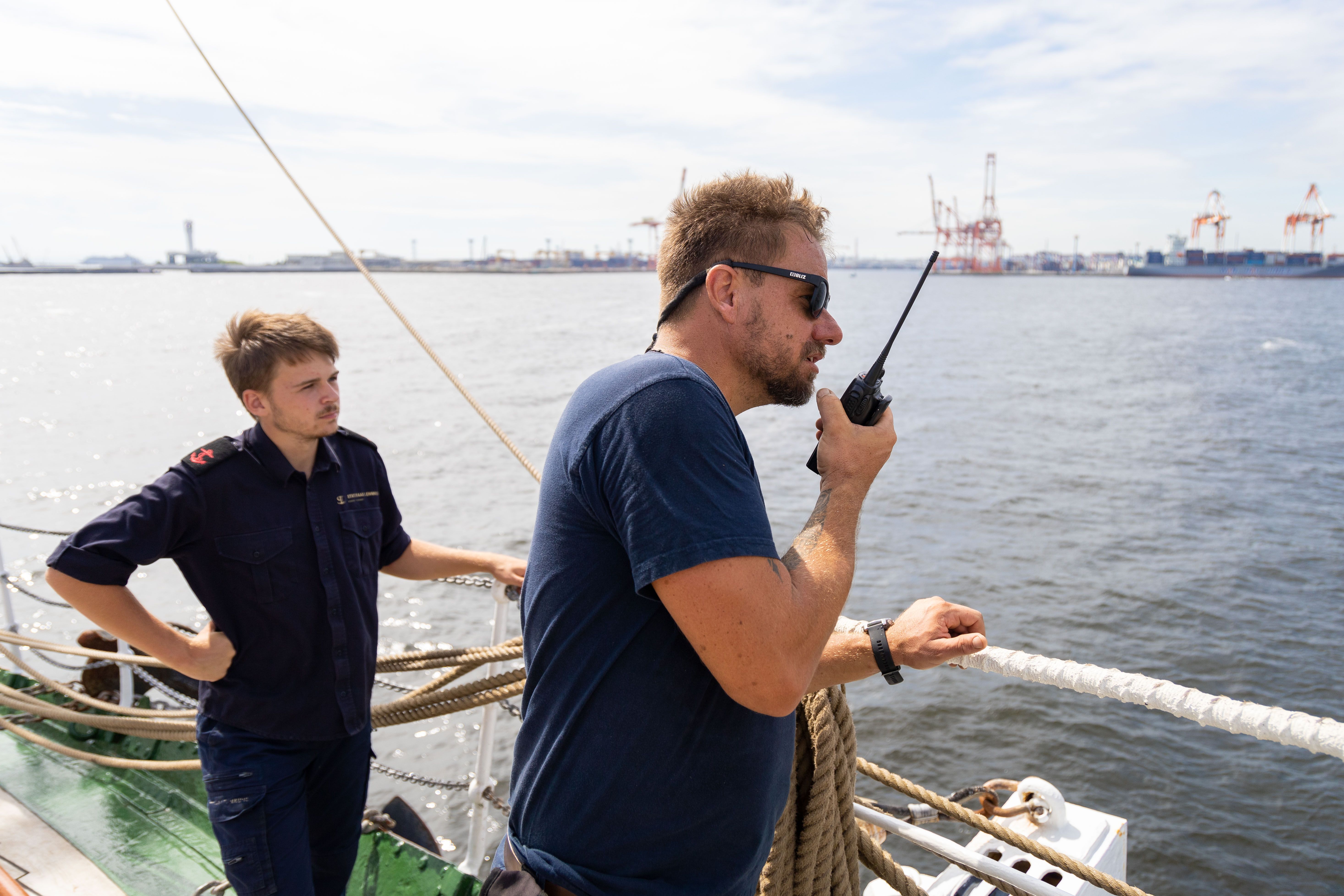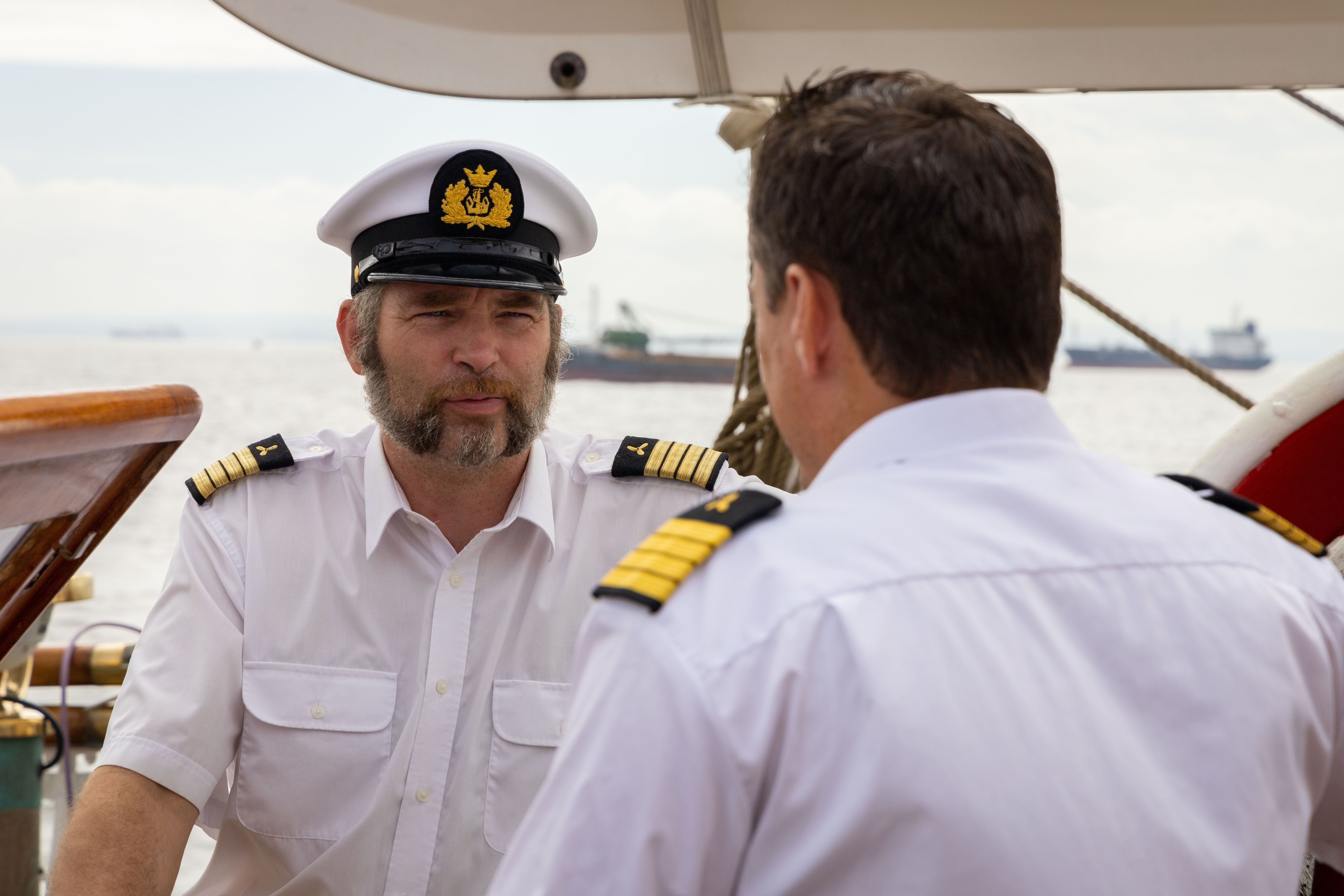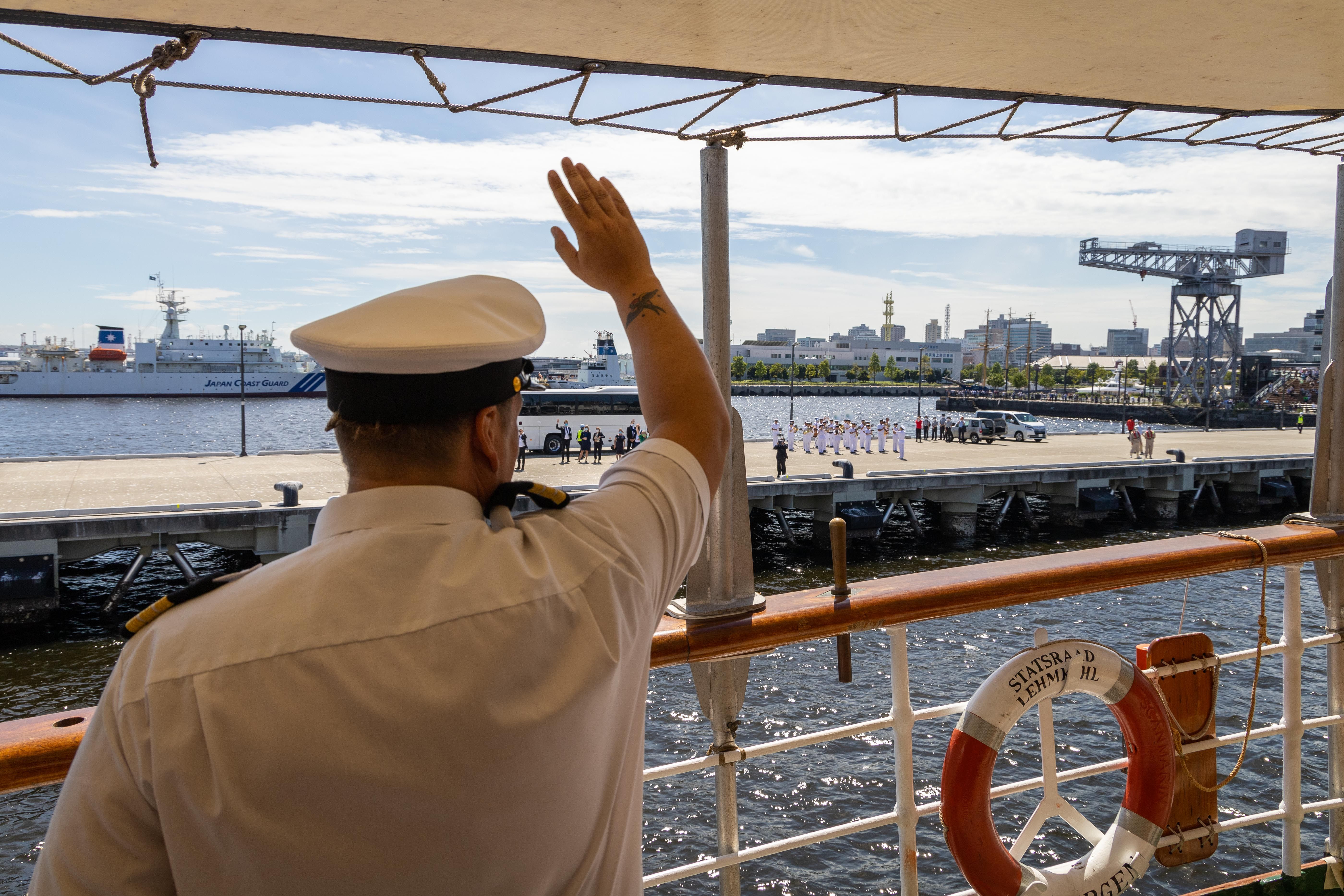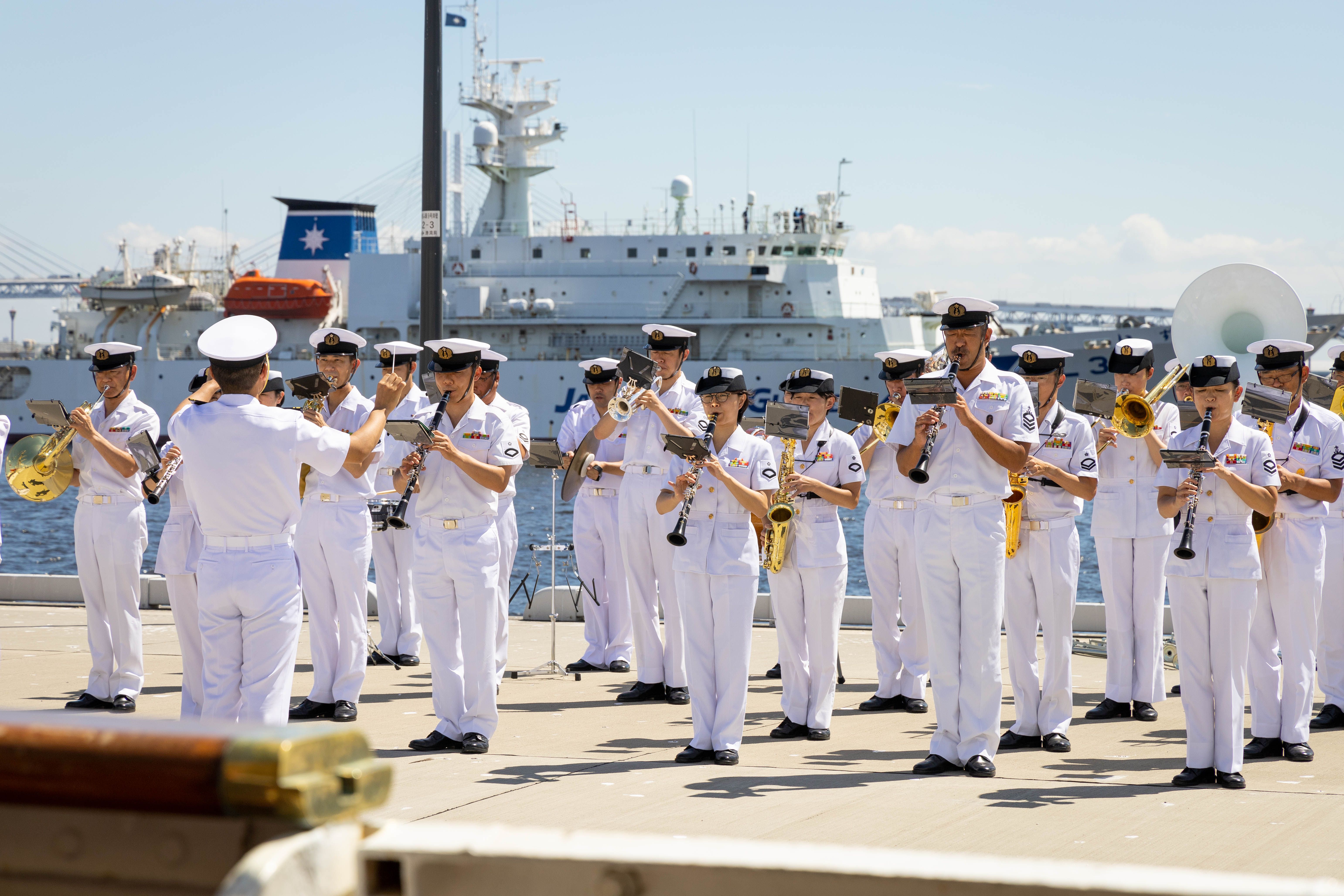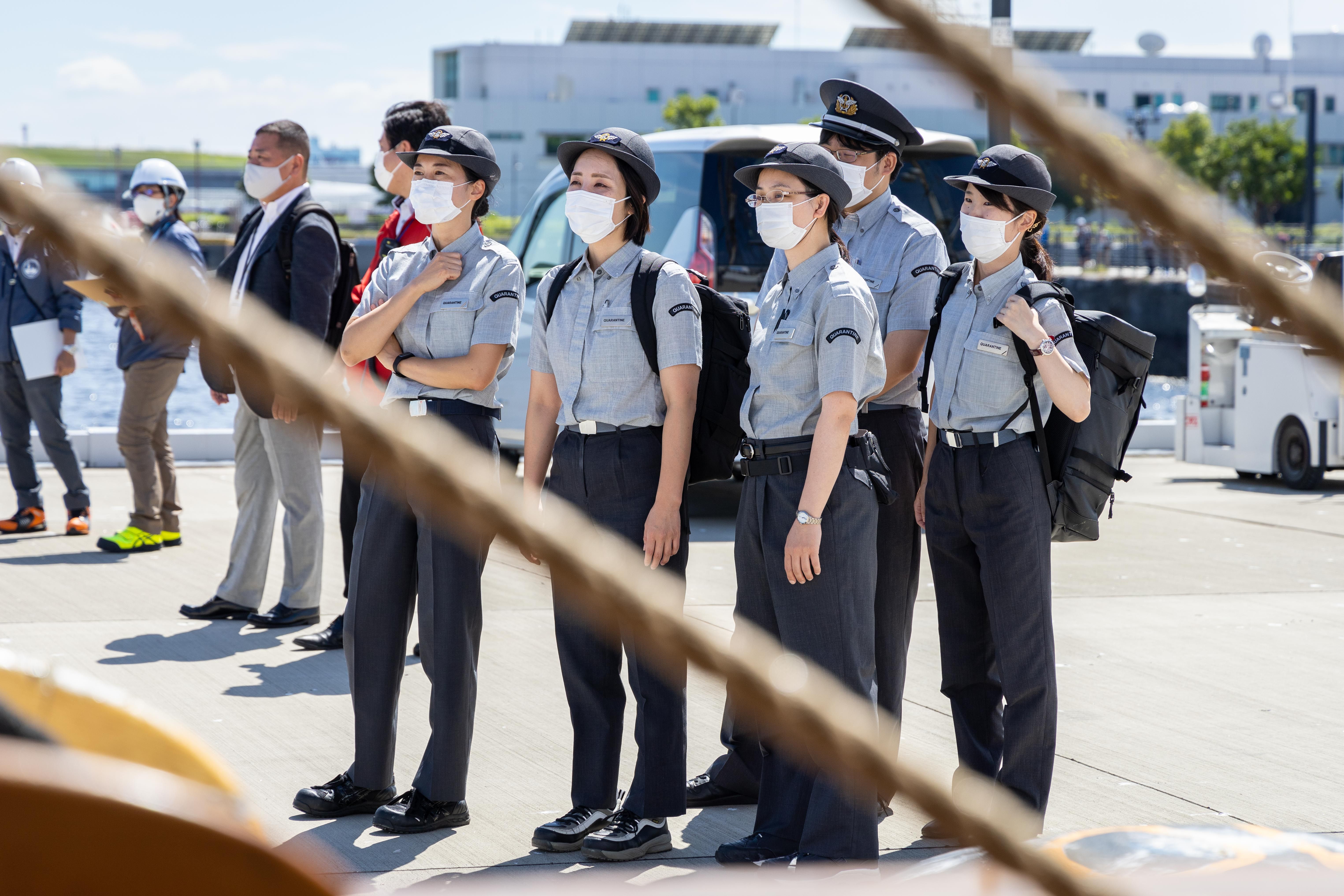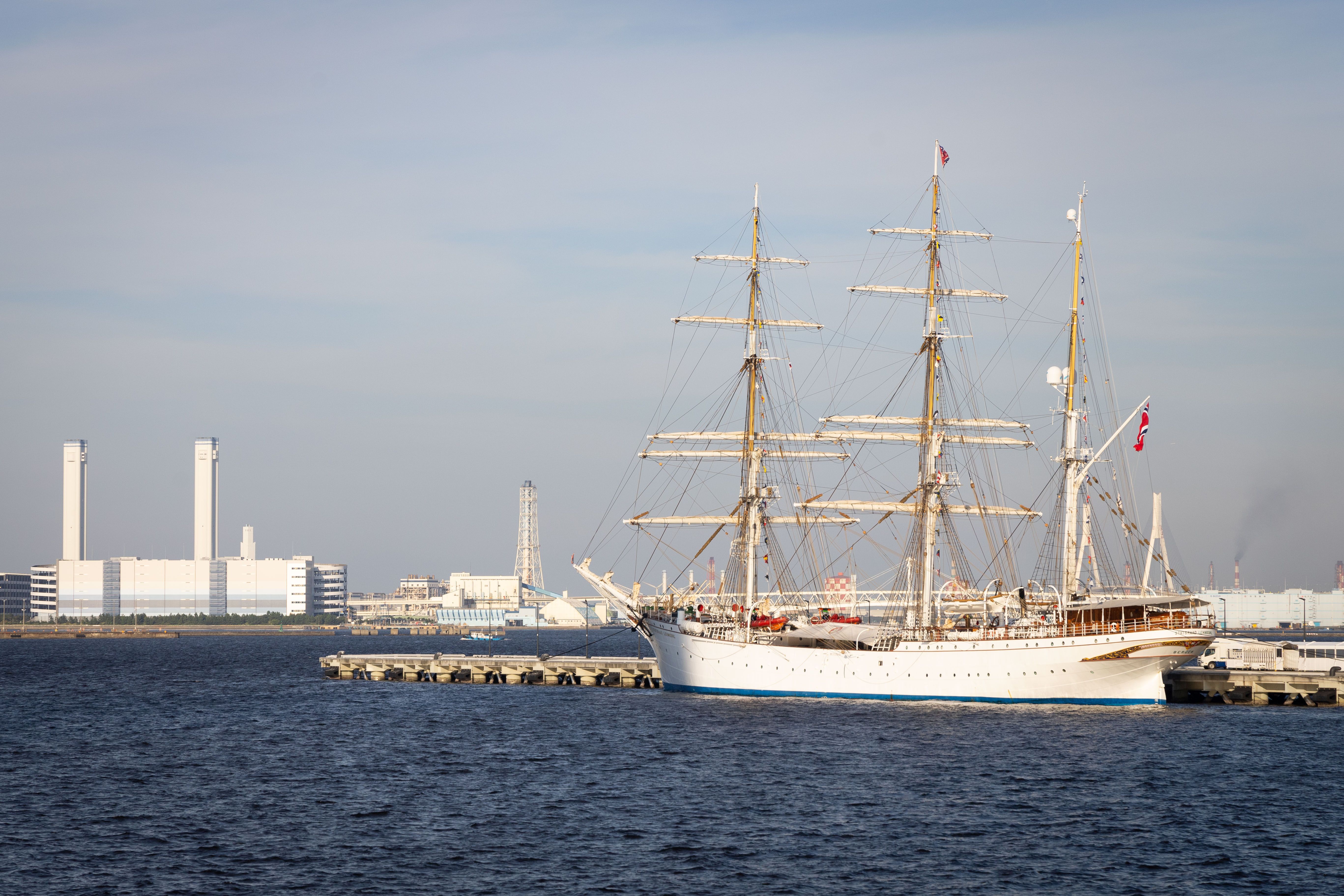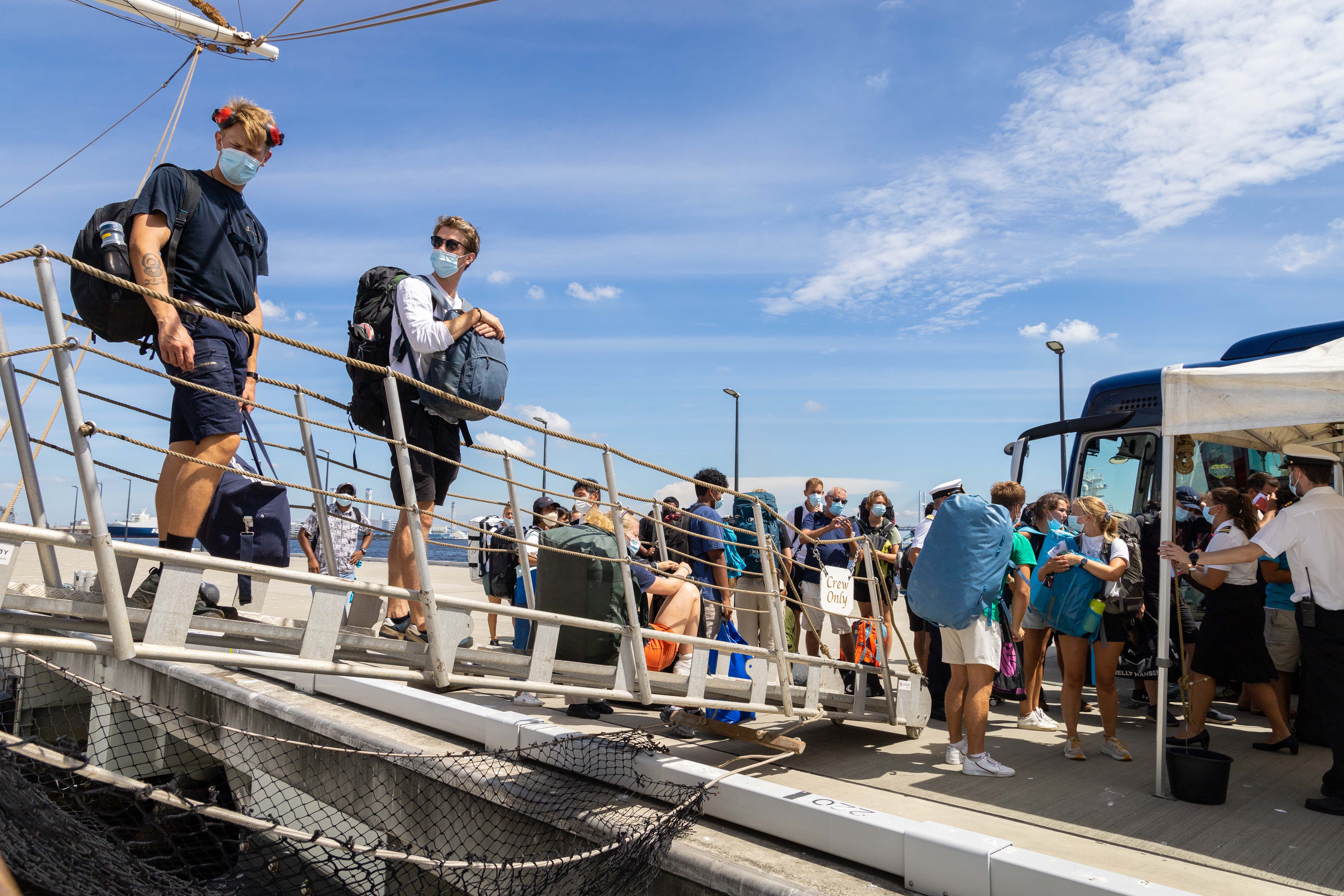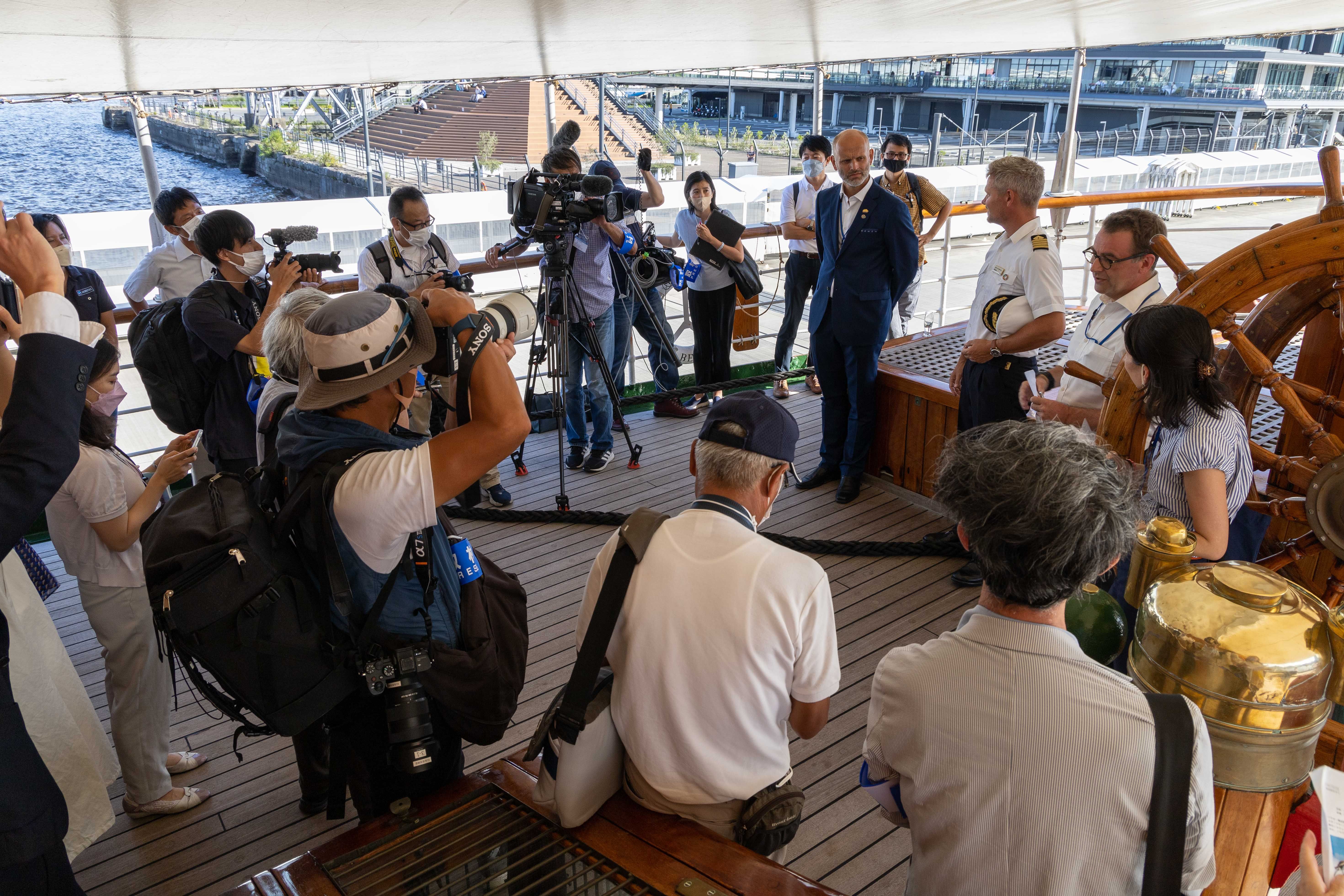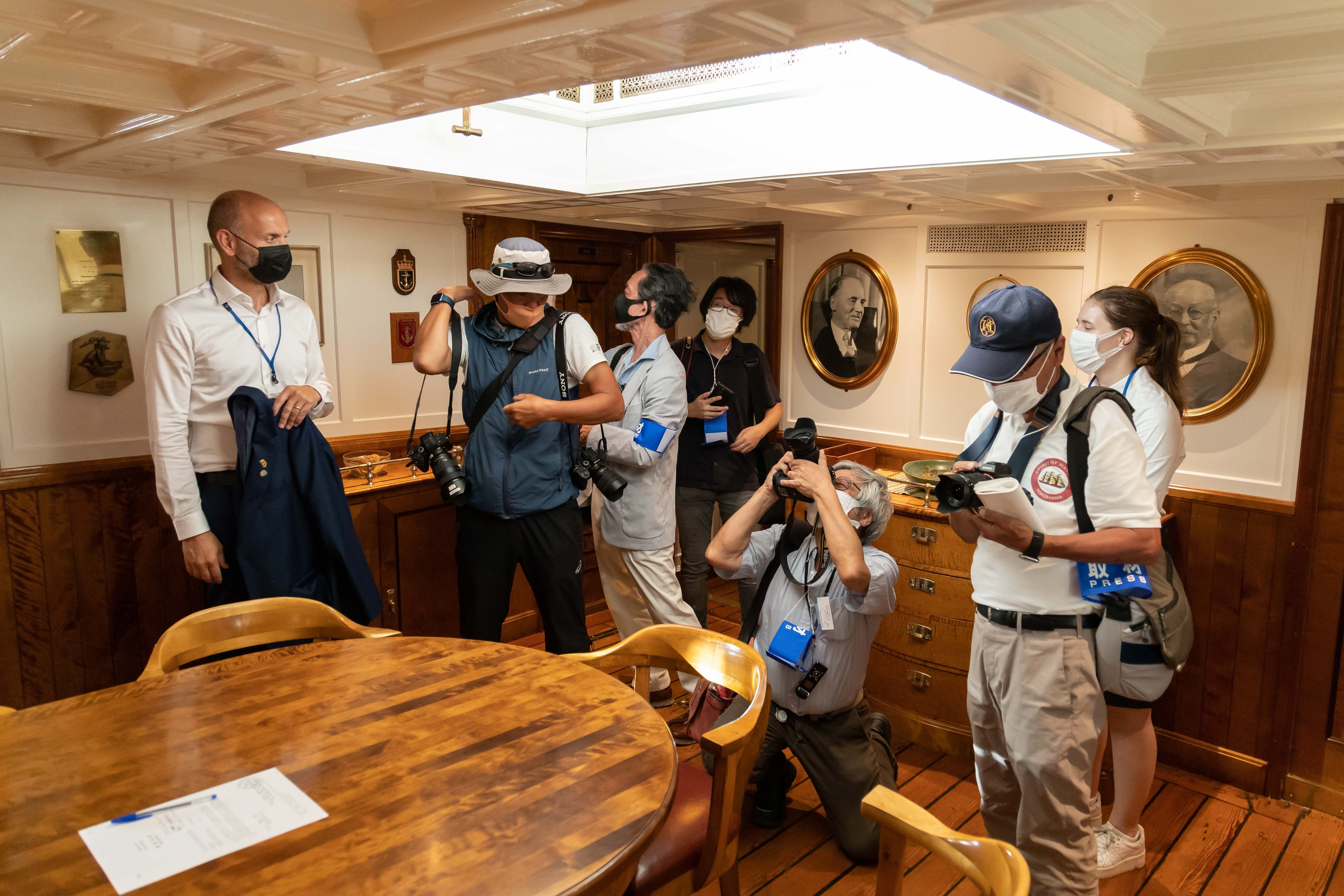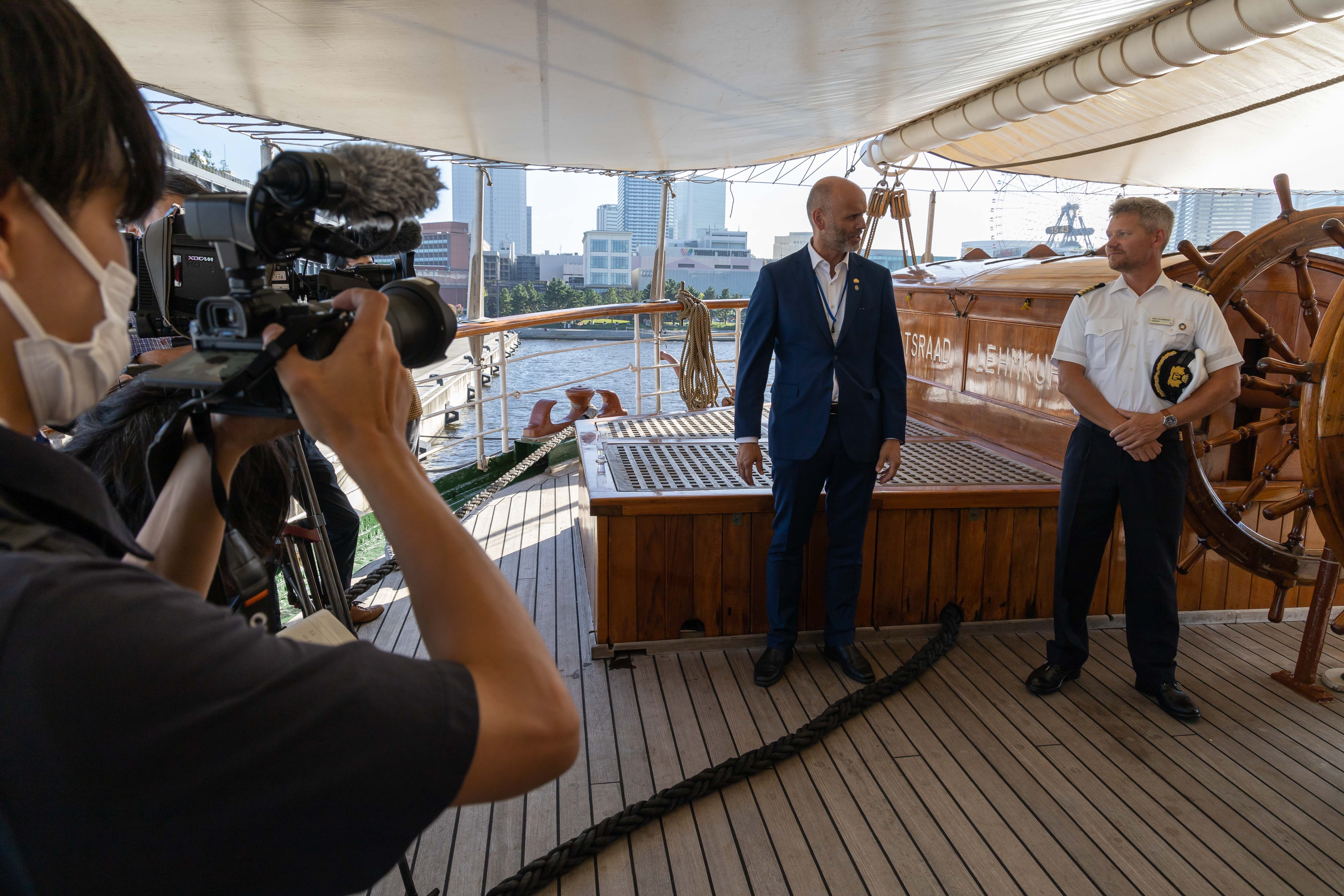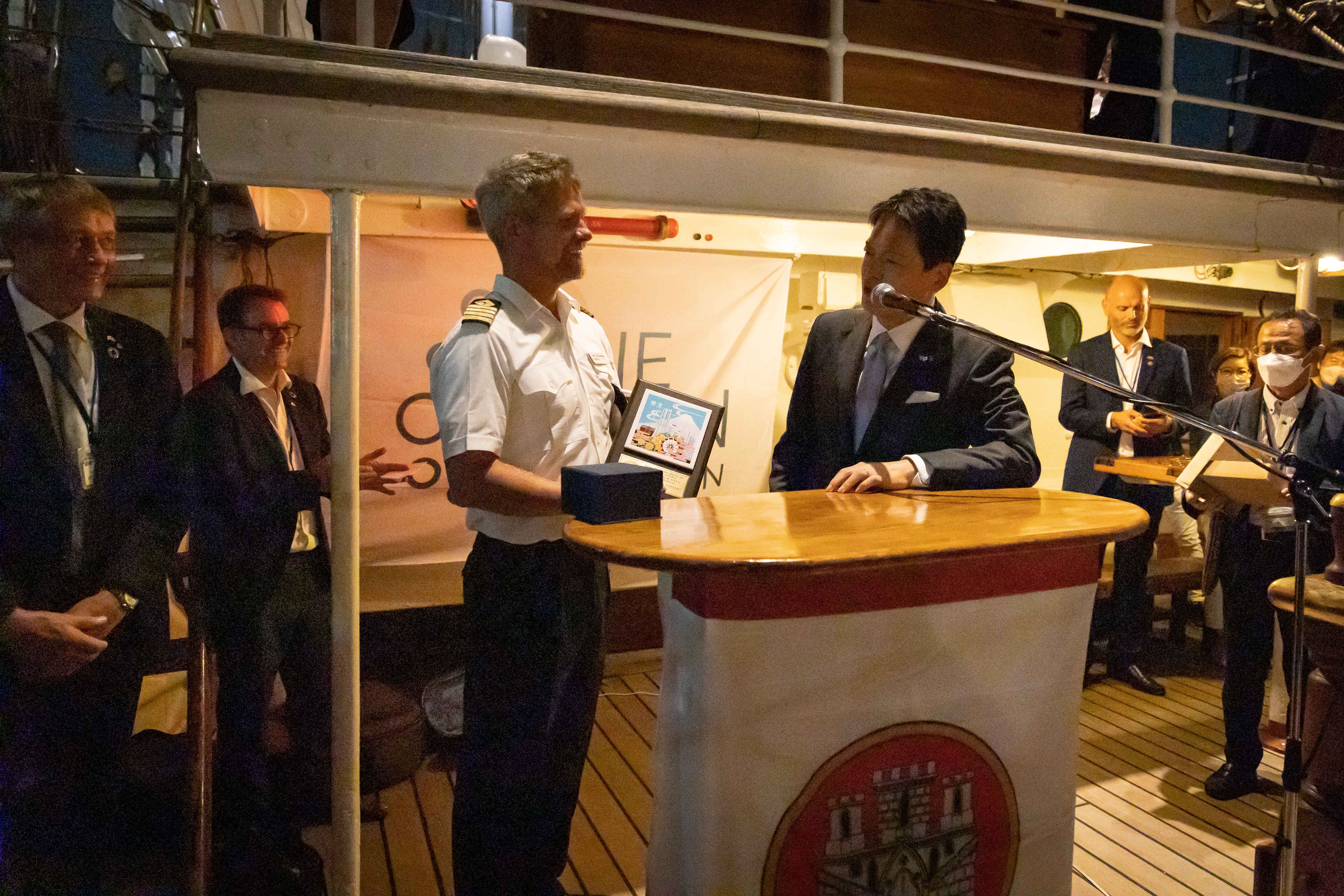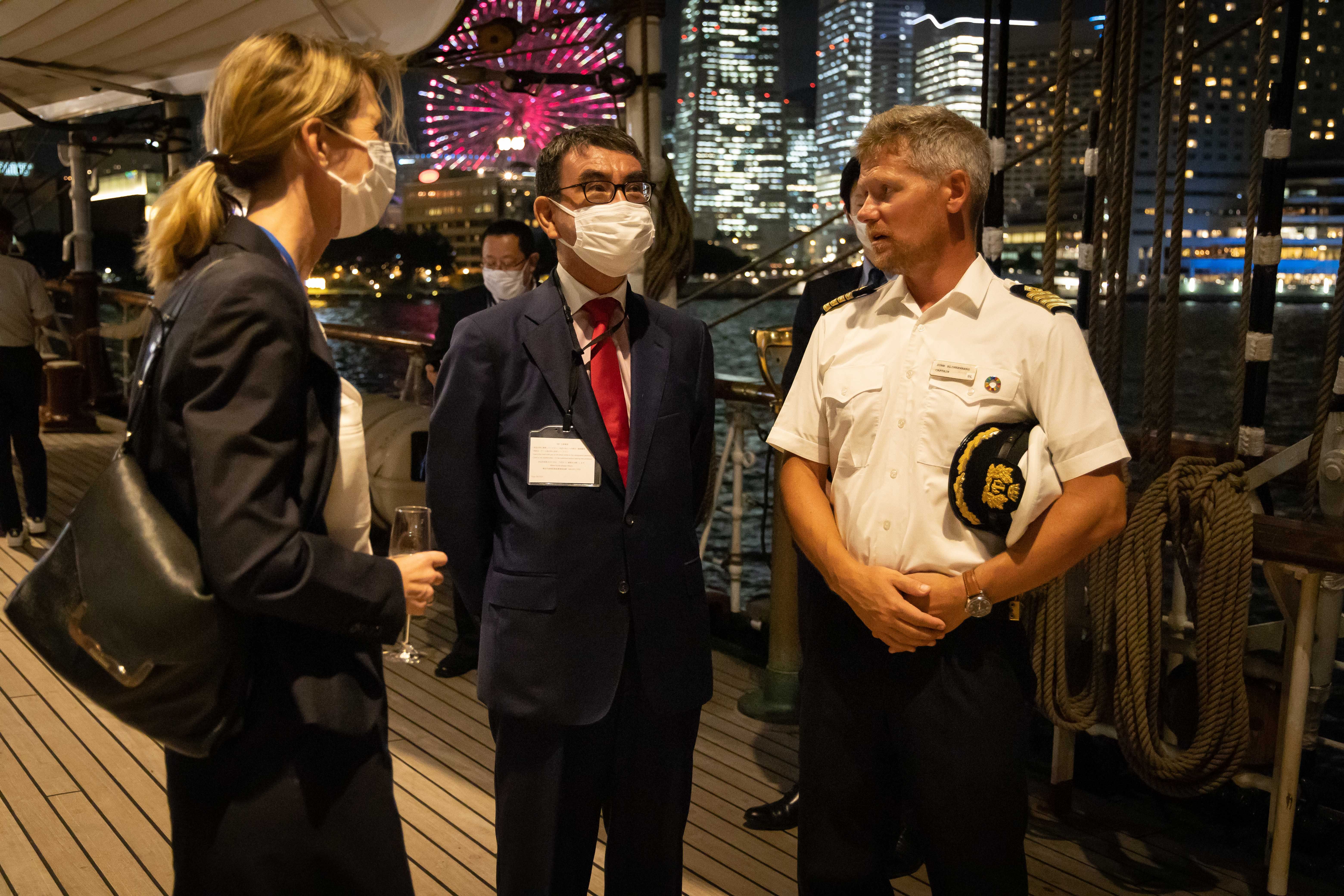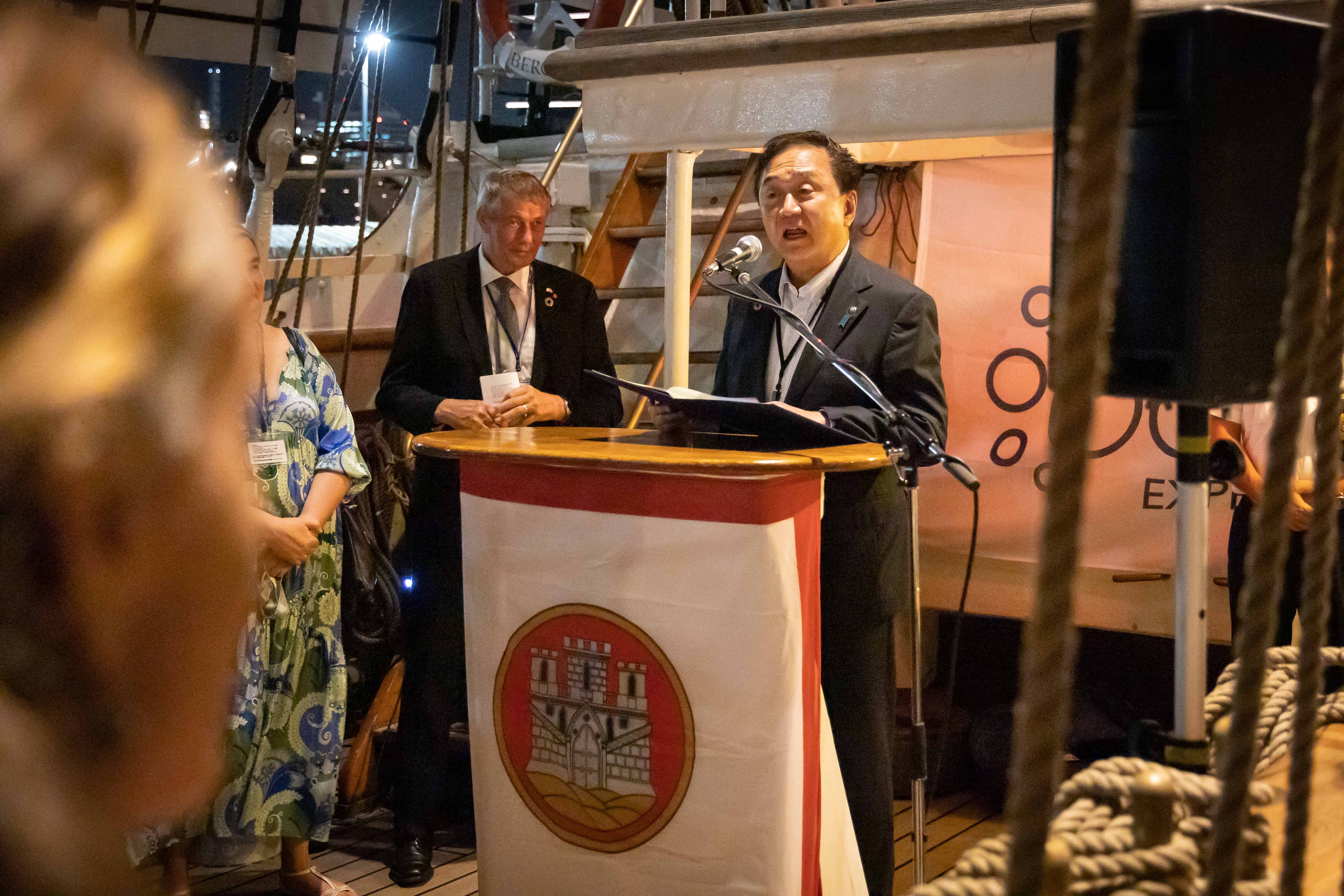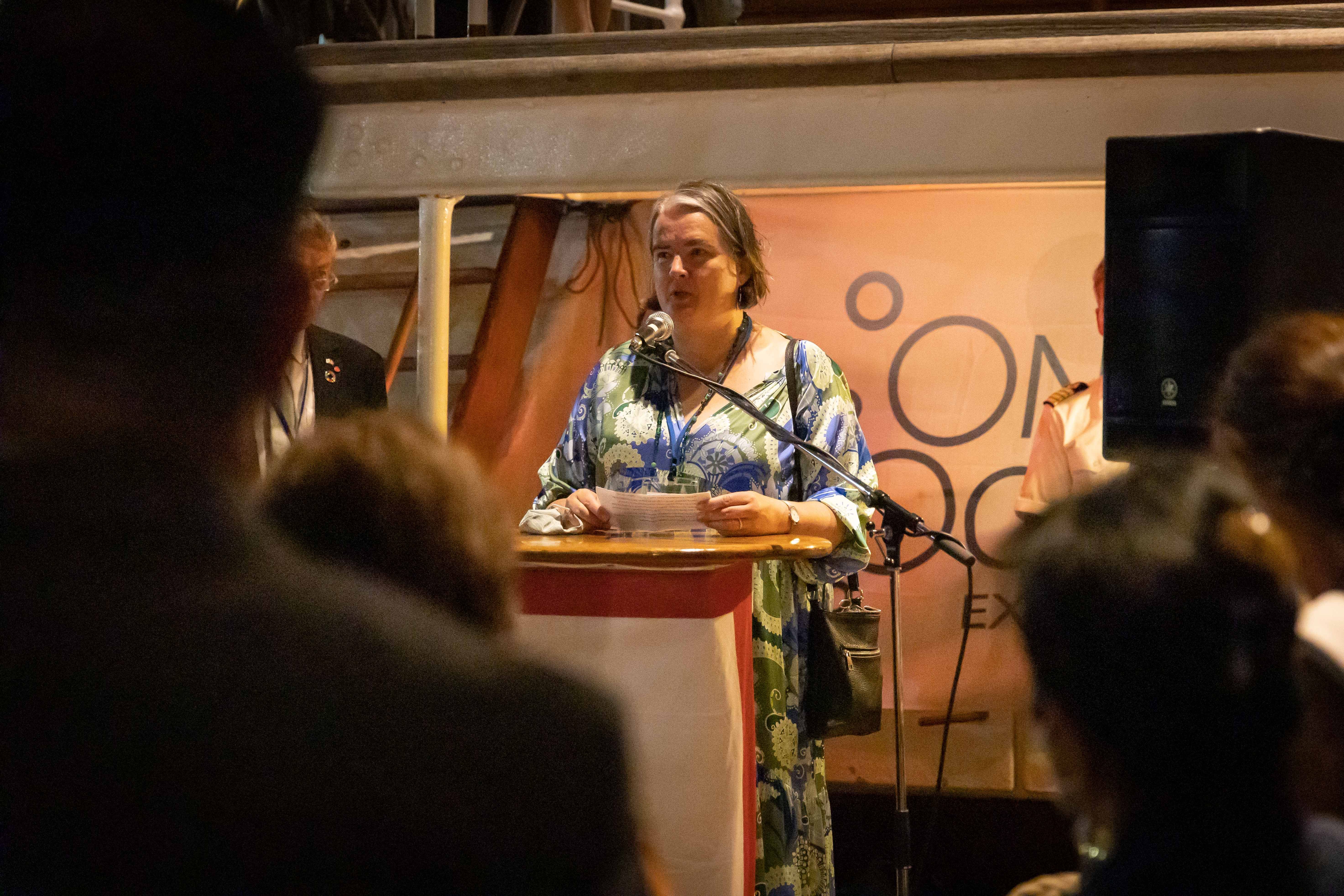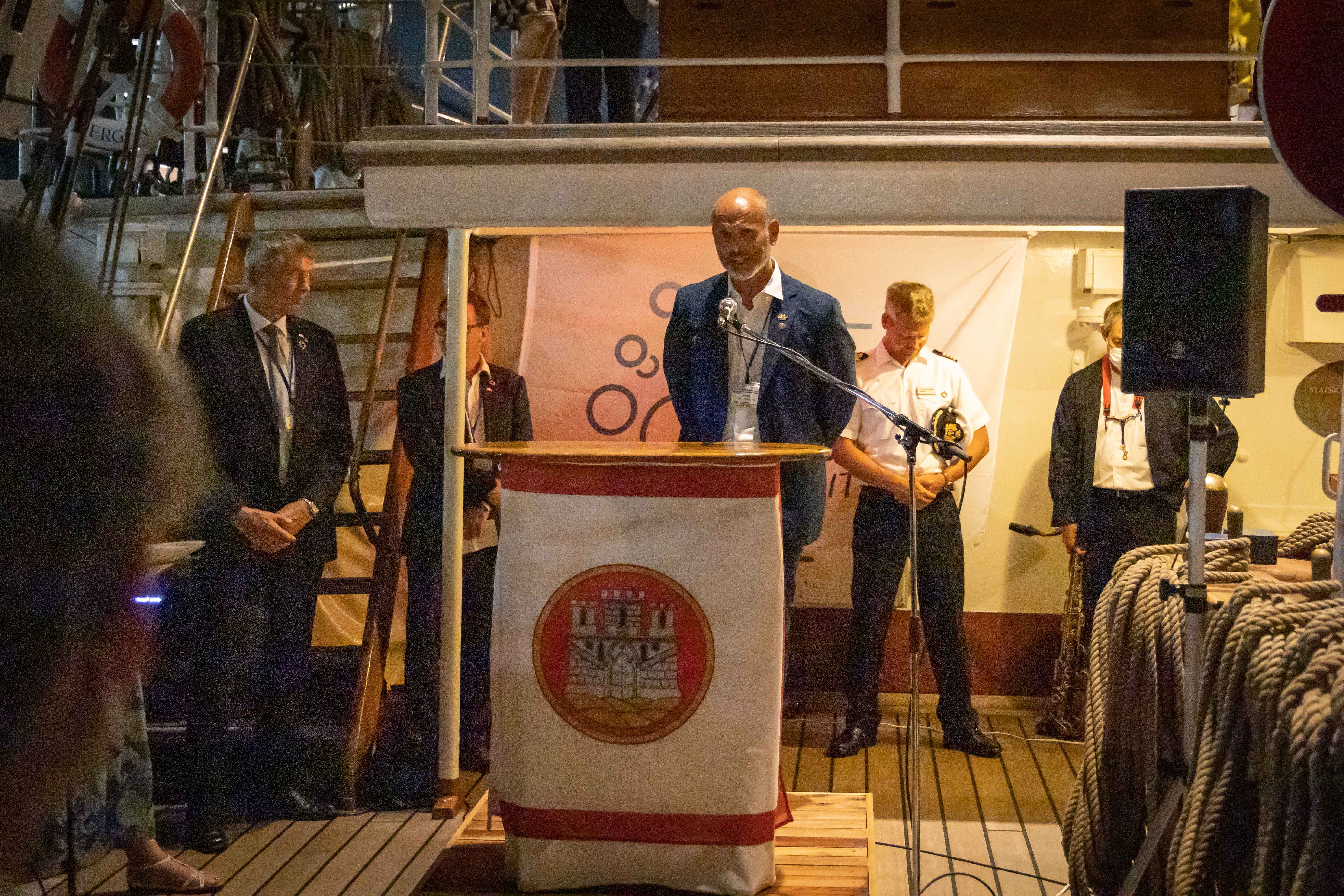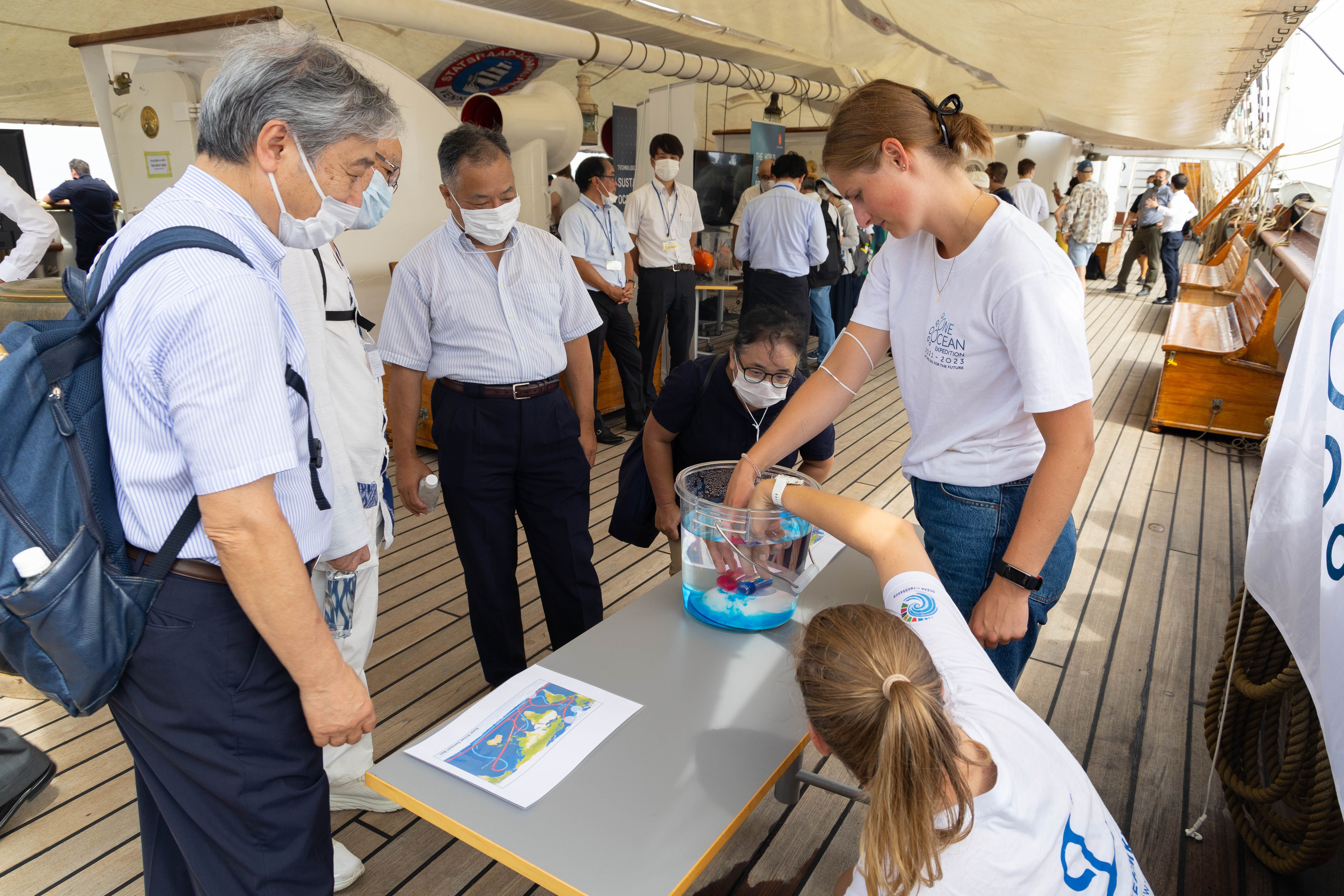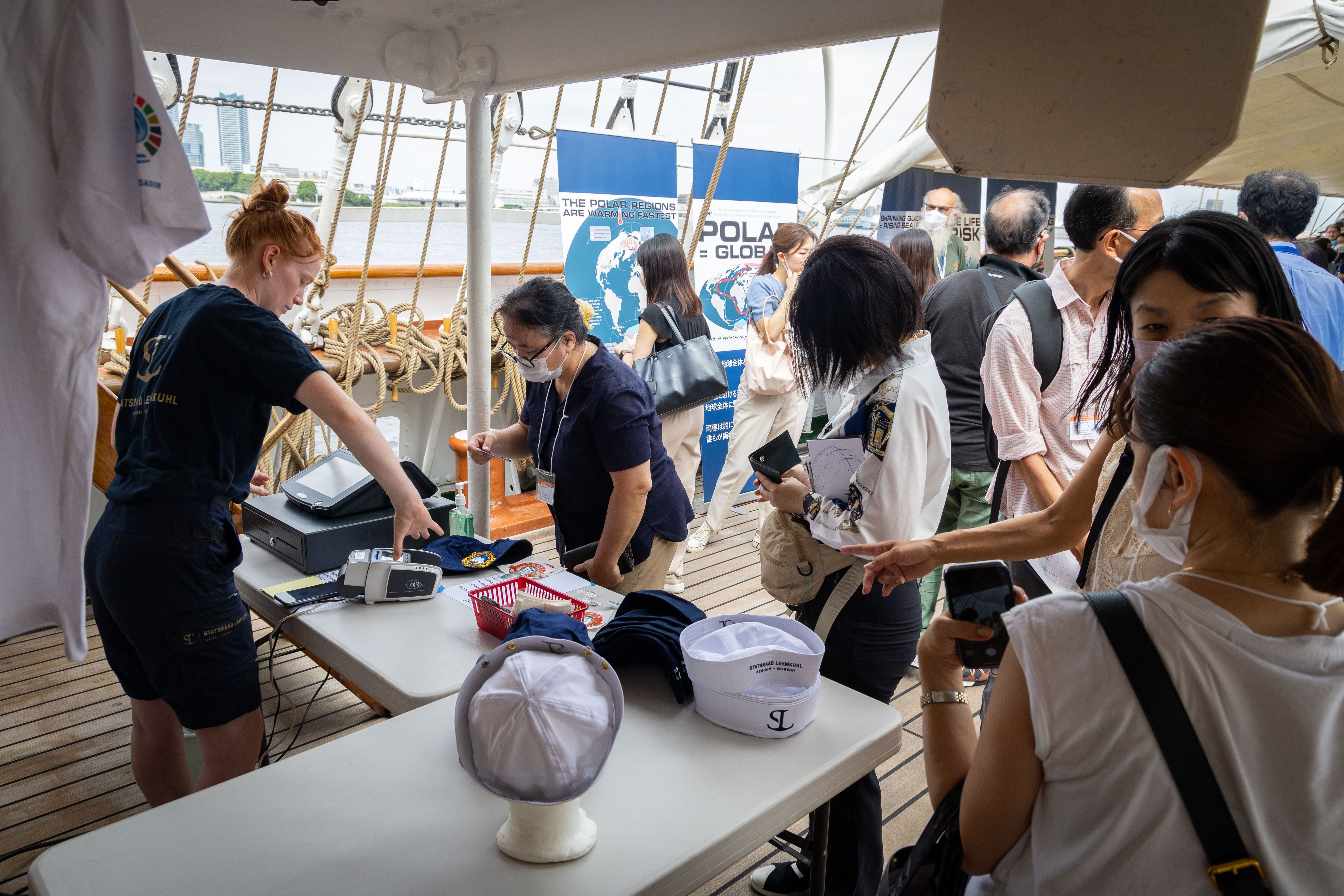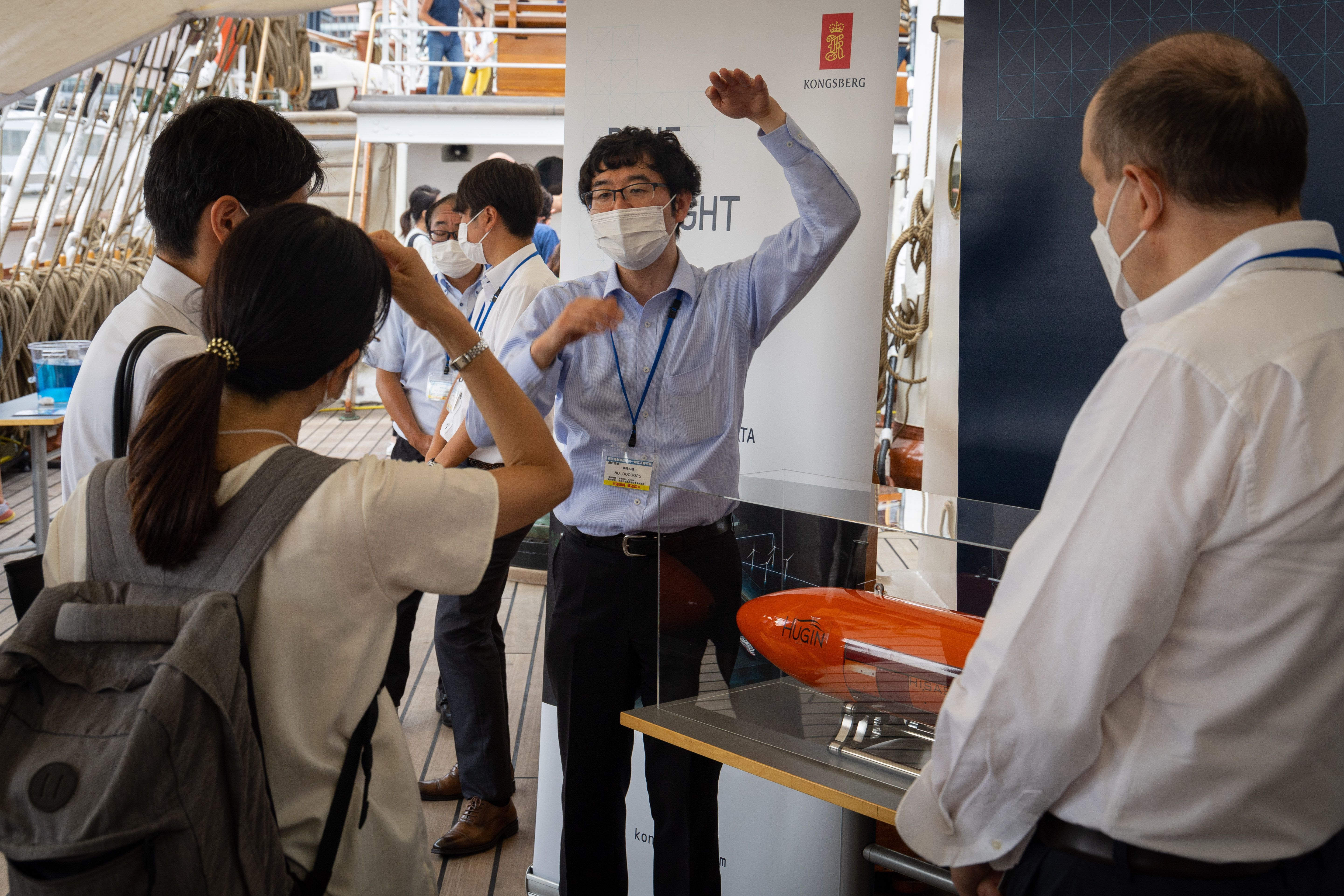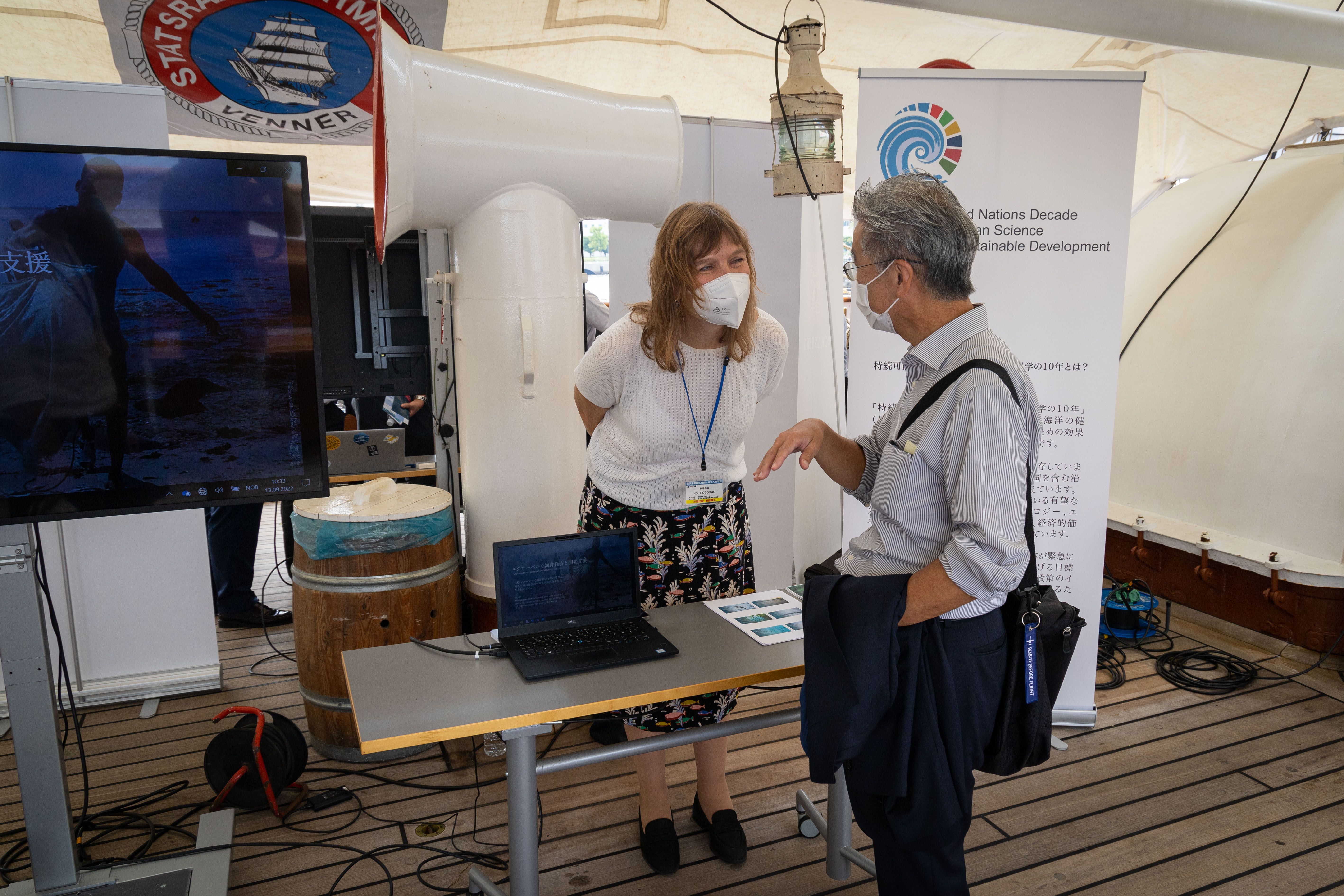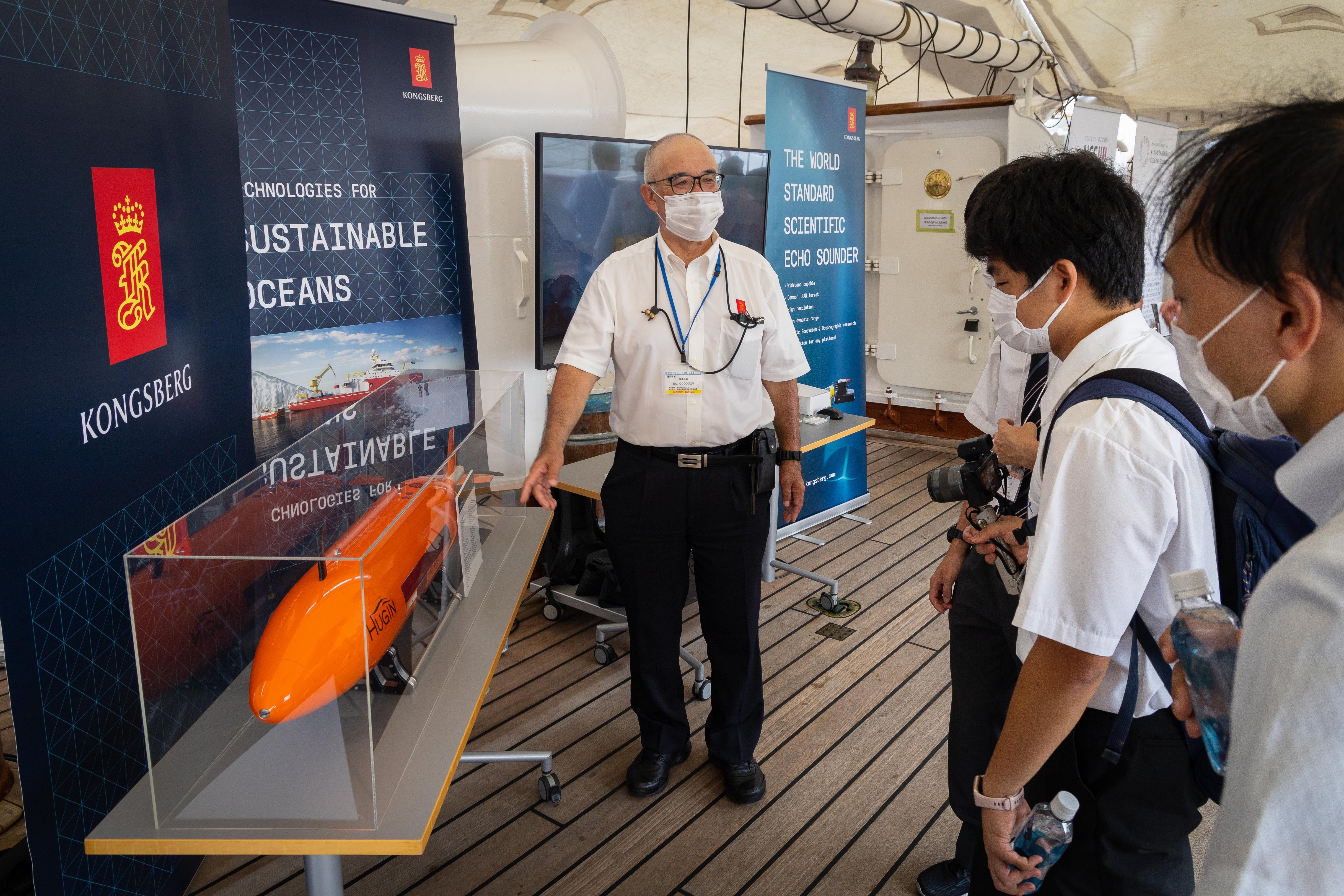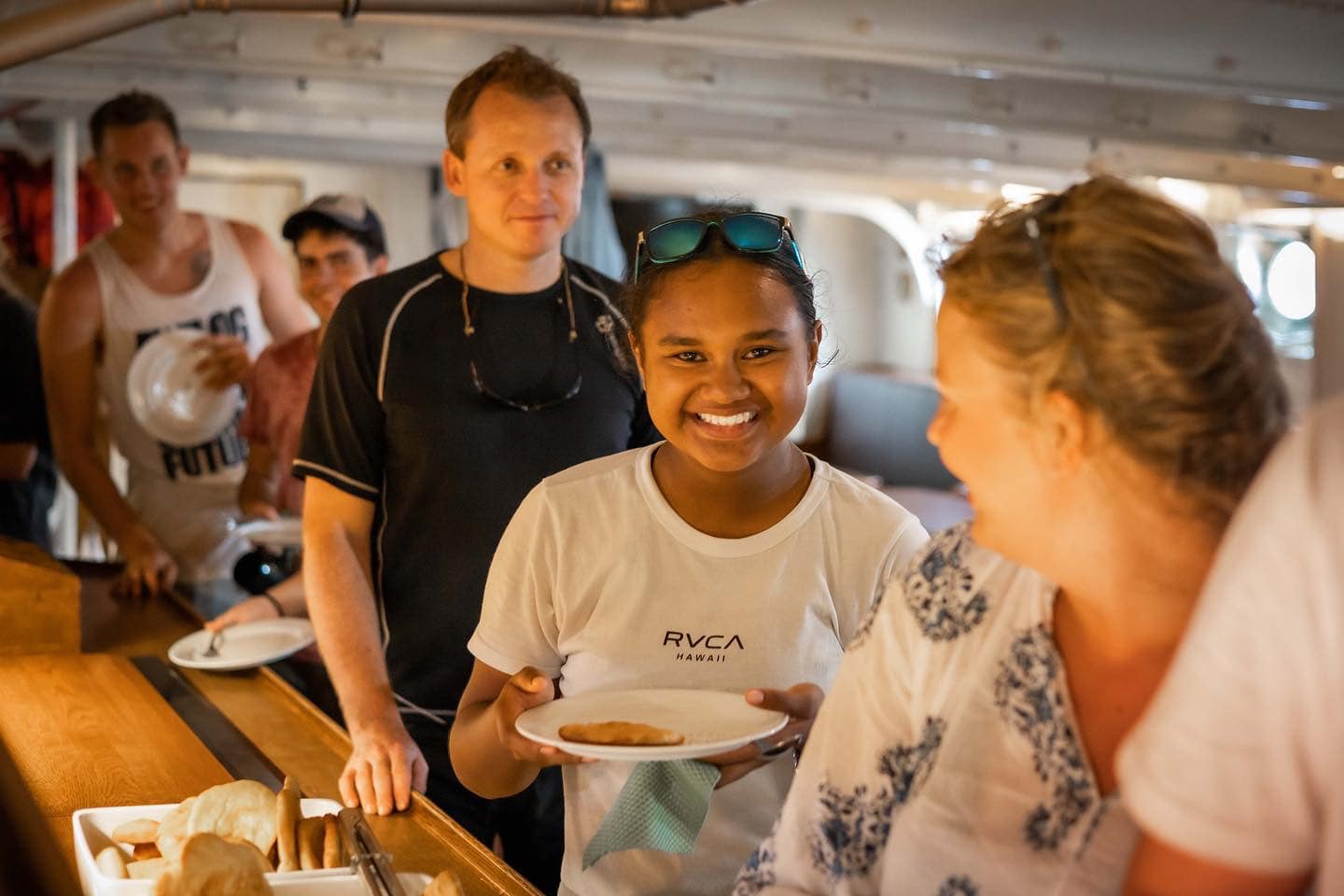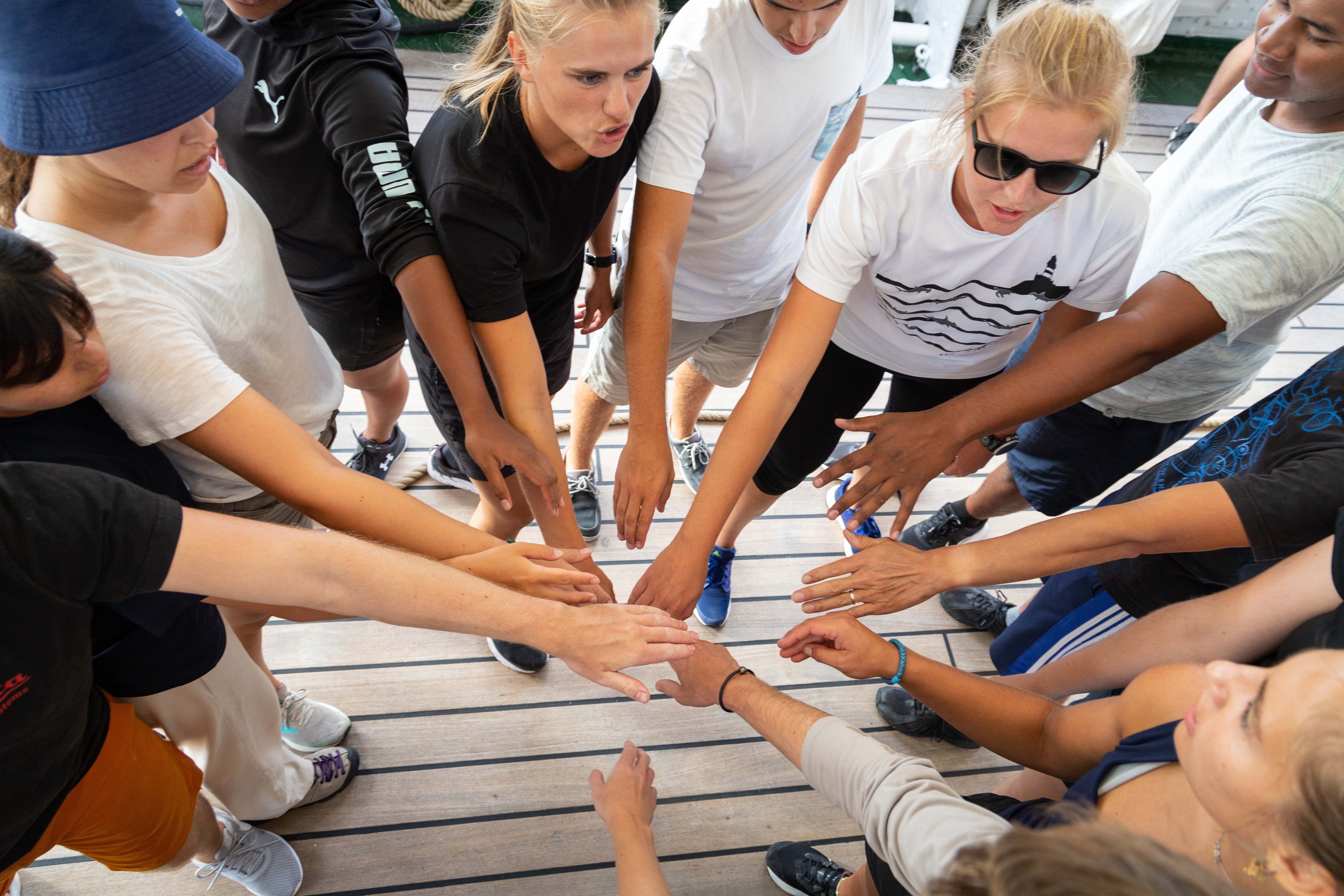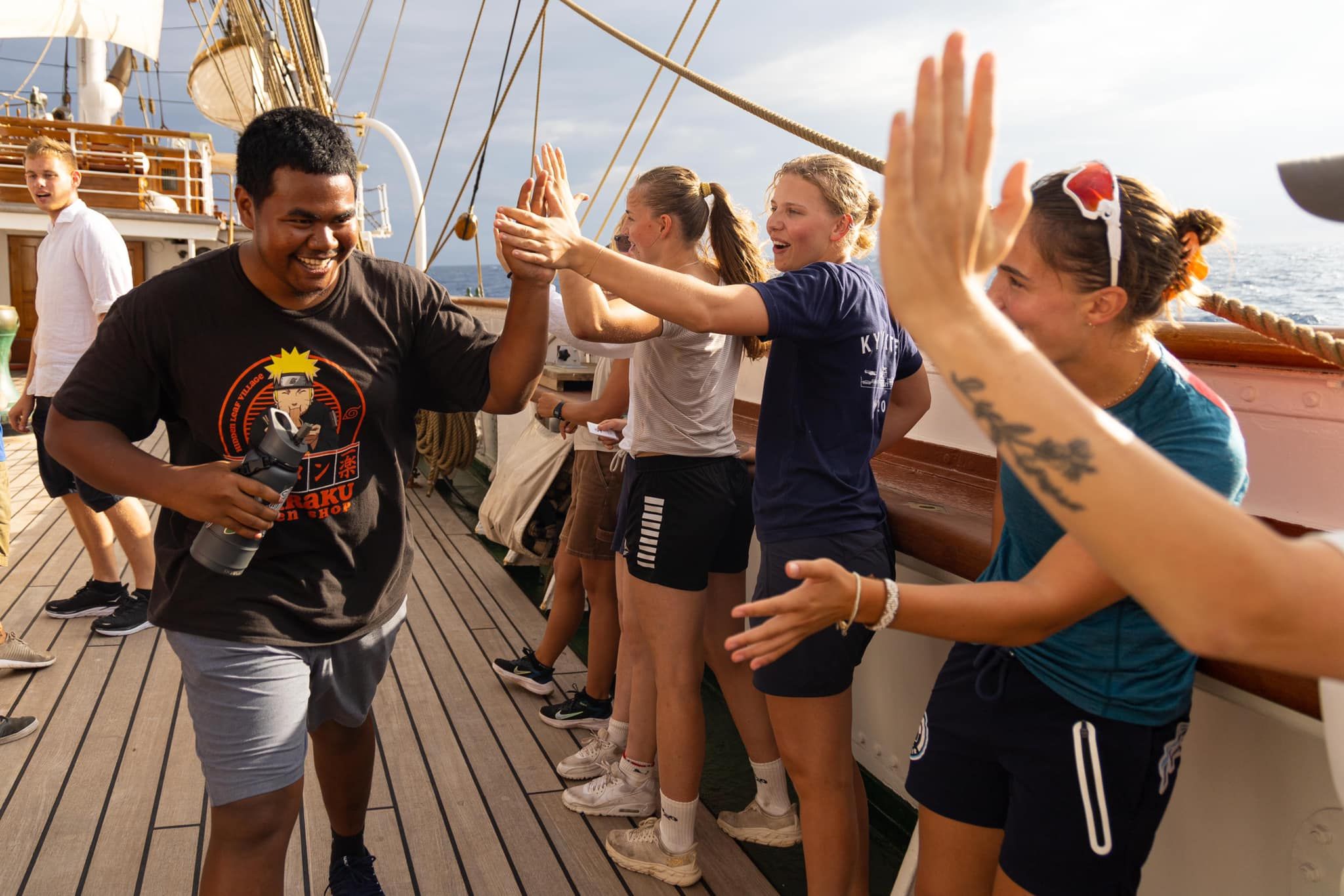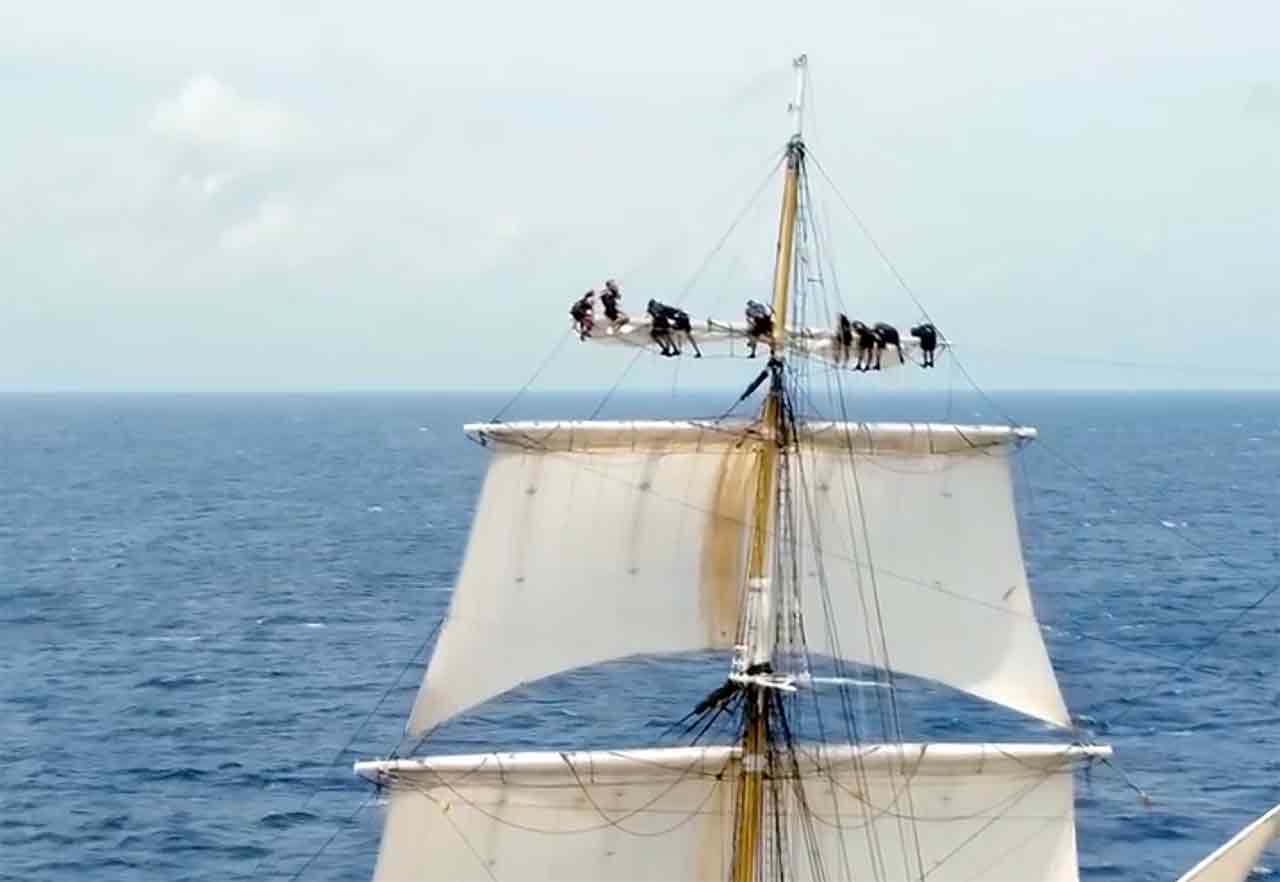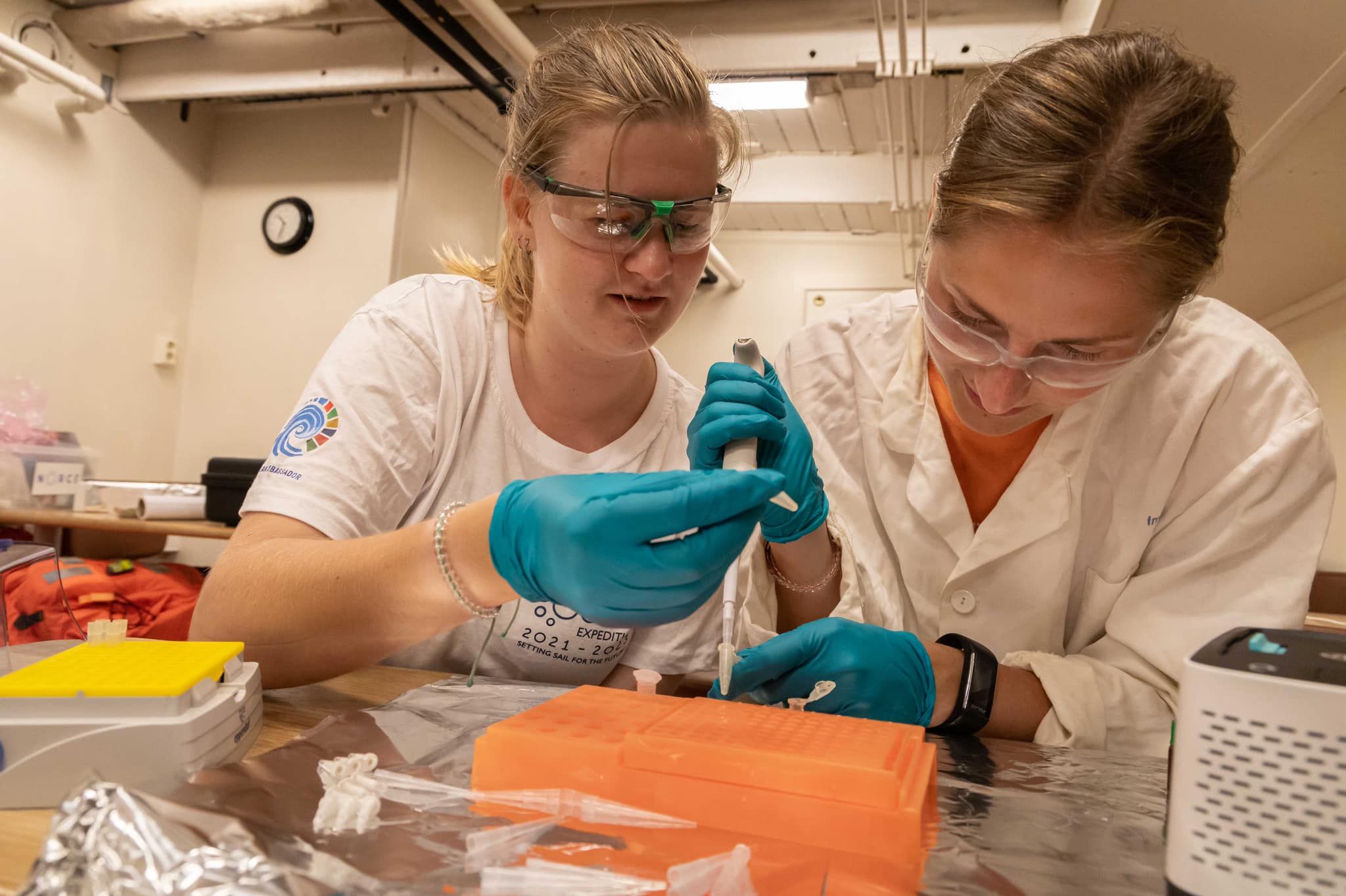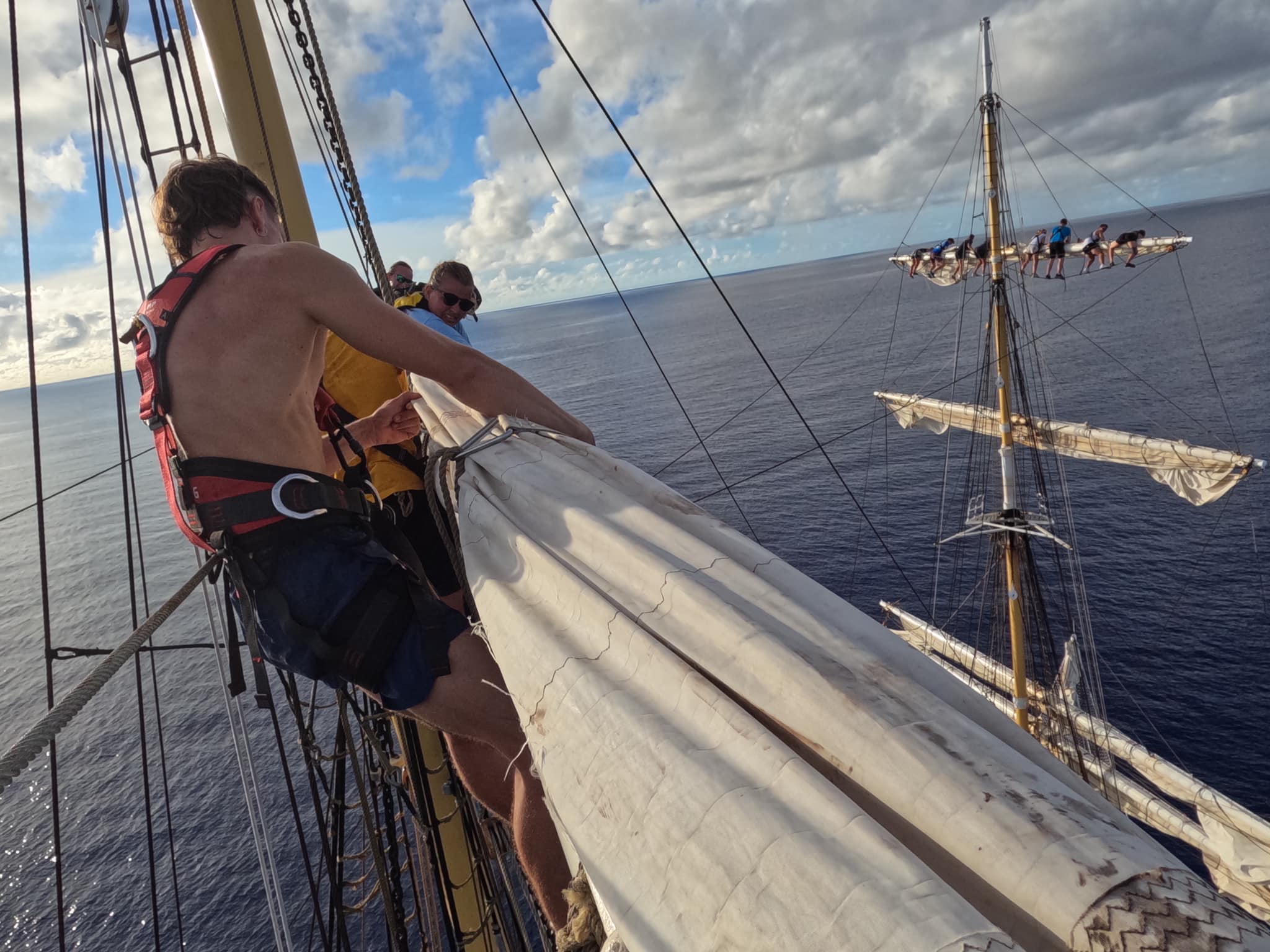You don't sail the tall ship Statsraad Lehmkuhl into Yokohama without it getting attention. Both politicians, the press and ordinary Japanese came aboard, and went ashore again with new knowledge about how important the ocean is to us all.
Haakon Vatle, expedition leader for The One Ocean Expedition and director of the Lehmkuhl Foundation, had been looking forward to this moment for a long time. He was on shore when Statsraad Lehmkuhl docked in Yokohama on September 12 2022.
- It was very emotional to see the ship enter Japan for the first time in its 108-year history. We have been planning this for a long time, and it's great to see that the ship is finally here, says Vatle.
Lots of attention
One of the reasons for using Statsraad Lehmkuhl is the attention the beautiful ship creates. This is exploited by The One Ocean Expedition for all it's worth, and with several events taking place on board, it was hectic days for both Vatle and the crew.
- Just after arrival the ship was full of journalists. Both local and national media were present, and the press coverage was massive, says an excited Vatle.
In the evening there was a reception on the main deck hosted by the Norwegian Embassy in Tokyo. Japanese ministers and civil servants and ambassadors from various countries took part.
- It was a top-heavy gathering on the first day! People were very excited, both about the ship and The One Ocean Expedition, says Vatle.
All the attention made it easy to focus on the ocean.
- The main message of the expedition is to share attention and share knowledge about the important role of the sea for a sustainable future. The fact that we managed fill the ship with important decision-makers, both in politics, business and research, shows that we are making a difference. We cannot save the world alone, but we will use the ship as a tool to create awareness about it and get people started.
The head of the UN Ocean Decade
One of the important persons who came on board Statsraad Lehmkuhl was Vladimir Ryabinin, the leader of the UN Decade of Ocean Science of which The One Ocean Expedition is a part. He laughs a little when he admits that he simply fell in love at first sight when he saw the ship, and says that it was emotions that made him become an oceanographer as well.
- As a boy, I snorkeled at home in the Black Sea, and thought I had found the remains of a sunken city down on the ocean floor. It made me want to learn more, study, do research, and the fascination doesn't disappear even though I'm now getting old, he says.

The good mood on board makes Ryabinin happy.
- People meet, sort out how to live together on board, have fun and become friends, while having science and research as the basis.
Open ship
The next day Statsraad Lehmkuhl was open to the public. The ship was full all day with exhibitions by, among others, the Norwegian Institute of Marine Research, the Norwegian Polar Institute and Japanese scientists.
- "Open ship" is a great opportunity to meet local people and create interest in the ocean and the ship. Several organisations set up information booths and exhibitions. There is a nice mix of students, scientists, and also our commercial players, who talk about sustainable solutions and what it is like to take part in a sailing expedition.
Vatle believes the Yokohama visit has strengthened Norway's relationship with Japan.
- On the leg from Palau to Yokohama, we had with us the two most prominent research institutions in Japan, Jamstec and OPRI, which also established ties with Norwegian research institutions. So we have strengthened the cooperation, both on board and here in Yokohama.

Everyone is equally important
What is the advantage of being on a ship and getting to know each other the way it is done her?
- It's absolutely fantastic. Titles and your name, whether you are director or president, it does not matter. When you get on board the ship, everyone is equally important. We are all in the same boat and have an important function. You have to work in teams, you have to pull ropes together, you live close together in hammocks, you get to know yourself and each others, for better or for worse, says Vatle, who sailed with Statsraad Lehmkuhl for several years.
Okinawa next
After three days in Yokohama, Statsraad Lehmkuhl set course for the next port, Naha on Okinawa. On board are students from the University of Western Norway. Arrival in Naha is September 24.
- They will get the same experiences as the others who sail with Lehmkuhl. They will get to know each other and work together, learn about the ocean and sail the ship south to Naha. The expedition then continues with new people on board until the return to Bergen in April next year.

Are you satisfied so far, Vatle?
- I am incredibly proud of everyone involved in this, everyone is an important piece. Yokohama is the port where we have really been shown what the ship can be used for. The pandemic has prevented us from doing this before, but here it succeeded.
- The key to the visit being a smashing success is the good cooperation we have with the Norwegian Embassy in Tokyo. We have a fantastic collaboration with the Norwegian Ministry of Foreign Affairs and the foreign diplomatic missions, so a big thank you to all of them.



